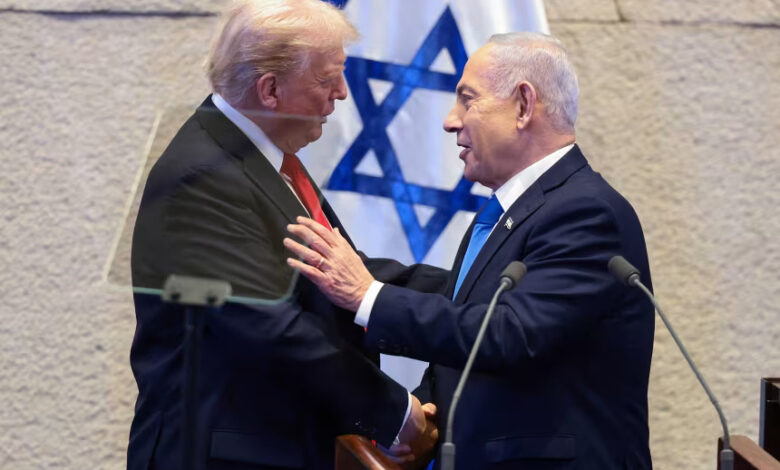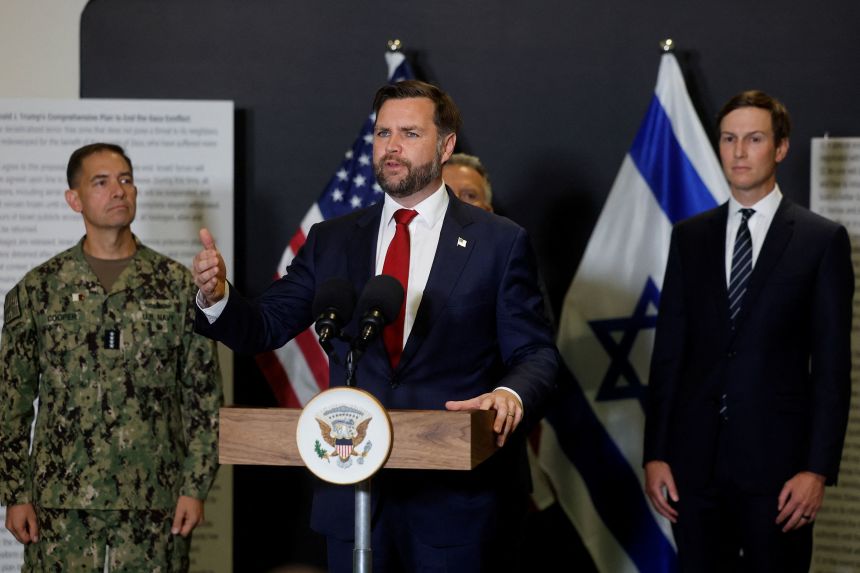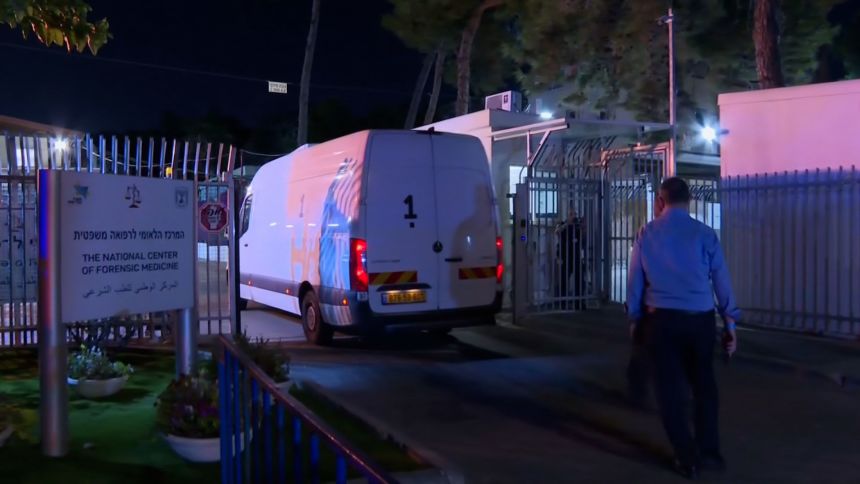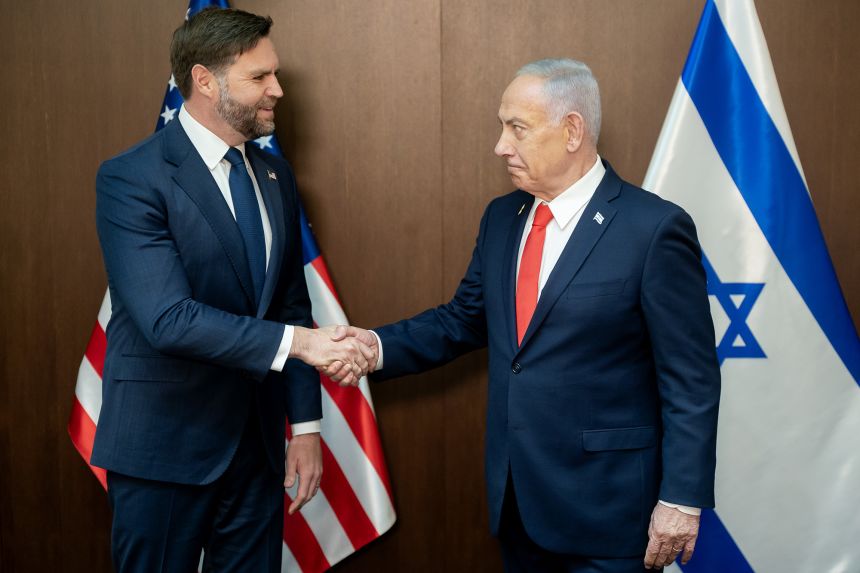
An American official called it “Bibi-sitting” – a revolving door of the highest-ranking members of the Trump administration to make sure Prime Minister Benjamin Netanyahu, frequently known as “Bibi,” sticks to the US-brokered ceasefire deal.
It flipped the narrative on a decade-old campaign ad in which Netanyahu was the “Bibi-sitter,” watching a couple’s children on a date night.
Now it’s the US taking on that role, shuttling envoys, Cabinet members and even the president to ensure the implementation of the nascent Gaza ceasefire agreement.
In short, the “Bibi-sitter” has become the babysat.
In the span of just two weeks, an extraordinary parade of top US officials has descended on Israel in a diplomatic blitz.

US President Donald Trump launched the charm offensive, visiting Israel last week to oversee the signing of the Gaza ceasefire agreement. Then, on Tuesday, Vice President JD Vance landed at Ben Gurion airport to monitor the deal’s implementation. On Thursday, Secretary of State Marco Rubio is expected to arrive as well. Meanwhile, Trump’s son-in-law Jared Kushner and special envoy Steve Witkoff have conducted multiple missions to Israel, shaping and forging the agreement into a diplomatic reality.
High-level American visits to Israel during times of crisis are not unprecedented – President Joe Biden rushed to Tel Aviv days after October 7, 2023, in a powerful solidarity visit, warning Israel’s enemies not to get involved, with his Secretary of State Antony Blinken following multiple times. But those visits were more about solidarity and deterrence; Trump’s are about management and compliance. This United States is not merely mediating the Gaza ceasefire – it is actively managing it.
“We intend to stay engaged every single day to make sure peace takes hold,” Vance said at a news conference on Tuesday, unveiling a new US coordination center to monitor and assess real-time developments of the Gaza ceasefire deal.
“The event is being managed by an external entity, by the Americans, and this is a very problematic matter,” former Israel Defense Forces (IDF) Chief of Staff Lt. Gen Gadi Eisenkot told Israel’s Kan Radio on Tuesday. “As we progress with the agreement, more international forces will enter, and this will limit the IDF.”
Washington’s micromanagement of the deal’s implementation underscores its determination for the ceasefire to succeed. The Trump administration is spending an incredible amount of political capital to force the ceasefire to survive its first few weeks.
But it also reflects concern about the intent of Netanyahu’s political partners. His far-right allies have opposed an end to the war and called for a complete occupation of Gaza. Netanyahu was able to get the first phase of the deal through, including the return of the hostages in Gaza in exchange for the release of Palestinian prisoners and detainees.

The second phase is far more challenging: defining post-war governance and security forces in Gaza, as well as establishing what roles the Palestinian Authority, Arab states and other international stakeholders will play.
The fragility of the truce was exposed earlier this week, after a military clash in Rafah in which two Israeli soldiers were killed. Jerusalem was quick to declare this a ceasefire violation. Far-right Finance Minister Bezalel Smotrich tweeted one word: “War.” Israel carried out strikes across Gaza that killed more than 40 Palestinians.
On Sunday afternoon, Netanyahu announced a suspension of humanitarian aid entering Gaza. But he reversed course two hours later under American pressure, according to an Israeli source with knowledge of the matter. Three days later, Vance said there would be “inevitable skirmishes,” but that the ceasefire would last.
The post‑war phase also marks a recalibration of regional roles. Despite deep Israeli skepticism, Turkey and Qatar are central to Washington’s framework for reconstruction and mediation in Gaza. Vance stated pointedly in Jerusalem that “what troops are on the ground in Israel – or Gaza – is for Israelis to approve,” even as he praised Ankara and Doha for their “constructive” influence.
“The rules of the game are being written while we speak, but it’s already clear that the US is calling the shots and Israel is playing by its rules,” Amos Harel, Haaretz’s senior military analyst, told CNN. “Netanyahu will never admit it, but to a large extent, Israel mortgaged some of its independence, with US generals controlling the wheel.”
The Israeli military is accustomed to incredibly close cooperation with the US, which has been on full display repeatedly throughout the war. But Harel says this is more than cooperation – it is management. “The Israeli military leadership does not necessarily like to have another authority hovering over their head,” he told CNN. But the military, whose chief of staff pushed to accept an earlier ceasefire, understands it’s the only way to end the war.
“The US track, even if it’s full of holes, is the way to get there,” he said.

This dynamic is reflected in the Trump administration’s repeated interventions in Israel’s strategic decisions over the past several months. In June, Trump ordered the Israeli Air Force to recall jets en route to a strike on Iranian targets. In September, he forced an apology to Qatar after a failed strike targeting Hamas leaders in Doha. Days later, he publicly instructed Israel to halt aerial operations in Gaza.
For some Israeli observers and politicians, the magnitude of American involvement could entrench the perception that Israel is dependent on US permission, eroding its sovereignty and freedom to apply force. “Netanyahu has single-handedly turned us into a protectorate, which accepts dictates regarding its security,” opposition leader Yair Lapid charged on Monday.
Netanyahu rejected the criticism. Standing alongside Vance in Jerusalem on Wednesday, he said the idea that Israel is an American client state is “hogwash.”

“One week they say Israel controls the US, a week later they say the US controls Israel,” he said sarcastically. Vance echoed his position, saying, “We don’t want a vassal state, and that’s not what Israel is. We don’t want a client state and that’s not what Israel is. We want a partnership, we want an ally here.”
Both Trump and Netanyahu have repeatedly declared they intend to push the Middle East beyond conflict management toward a renewed Abraham Accords expansion. It is the carrot that Trump has dangled in front of Netanyahu, and the White House is trying its best to will it into existence.
But the main Israeli political barrier persists: how to reconcile the demand for a viable pathway for Palestinian statehood with Netanyahu’s hardline coalition. Here, the American babysitting might play to Netanyahu’s advantage – Trump’s pressure can provide him with domestic political cover and an excuse for concessions his coalition would never otherwise accept.




